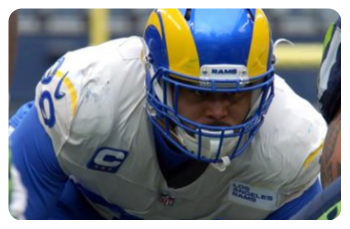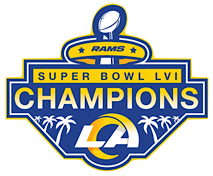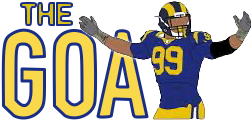http://fivethirtyeight.com/features/revisiting-the-greatest-show-on-turf/
Revisiting The Greatest Show On Turf
Neil Paine
Fifteen years ago, Mike Martz had a radical notion: “Why does the run have to set up the pass?”
That,
according to Sports Illustrated’s Peter King, was the question the new St. Louis Rams offensive coordinator posed to his head coach, Dick Vermeil, as they prepared for the coming NFL season in June 1999. It was to be Vermeil’s third in St. Louis, and judging from the
press clippings, probably his last if things didn’t change in a hurry.
1Things did change in a hurry, but it was still Vermeil’s last year with the team — just not for the reason fans expected before the season. Over the previous two seasons, Vermeil had coached the Rams to 23 losses and only nine wins, with an offense that ranked 23rd out of 30 NFL teams in
passing efficiency and
26th in scoring.
More Sports
Then came Martz. “I don’t know of any assistant coach that came in, at any one time, in any one program, and made as big a contribution as Mike did at that time,” Vermeil said in a recent interview. In his estimation, Martz’s contribution to the Rams
2Along with those of wide receivers coach Al Saunders, offensive line coach John Matsko, and strength coach Dana LeDuc. was equivalent to that of a first-round pick — and that’s not a hard case to make. Upon Martz’s arrival, the Rams went from laughingstocks to
Super Bowl champs with an explosive attack that came to be known as the “
Greatest Show on Turf.”
It was, at the time, the
third-most potent scoring offense and the second-most efficient passing attack
3By
adjusted net yards per attempt generated above league average. the league had seen in its modern incarnation.
4Going back to 1970, the year of the
AFL-NFL merger. And of even more historical significance, the Rams did it before the league became
fixated on
throwing the
ball.
While the longtime mantra of football coaches everywhere had been to “
establish the run” before passing, Martz’s plan was to aggressively pass the ball until the Rams had a lead worth protecting with the run. Stocked with speed everywhere and willing to throw in any situation, the Greatest Show on Turf proved that pass-first teams could win championships, and it heralded the passing fireworks we see in the NFL today.
“If you go back and look at the other teams of that era, the ‘conventional’ teams that you were competing with, [the Rams were] the aberration of the day,” said former Baltimore Ravens coach and current NFL Network analyst
Brian Billick, whose head-coaching debut came against the Rams in their 1999
regular-season opener. “St. Louis was so far ahead. It’s hard to say [they were] ‘pass-happy’ because they actually ran the ball pretty well,” he said. “But there’s no question they wanted to throw the ball.”
As Billick noted, St. Louis still could run effectively — running back Marshall Faulk racked up the NFL’s
fifth-most rushing yards in 1999 — but that wasn’t the team’s focus. The Rams anticipated what statistical
analysts would eventually
come to learn about football: Teams run when they win; they don’t win when they run. After using all that passing to build early leads, St. Louis rushed on the league’s sixth-largest proportion of its second-half plays — and no team devoted more of its fourth-quarter plays to running the ball. Martz had successfully flipped conventional football wisdom on its head, using the pass to set up the run just as he had set out to do.
And ever since the Greatest Show on Turf hit the NFL scene, the league has
trended toward ever more (and more effective) passing, further enabled by
rule changes designed to incentivize every team to spread the field and throw the ball aggressively.
The genesis of the Rams’ aggressive strategy came when Martz was coaching quarterbacks for the Washington Redskins a year earlier. As ESPN analyst Ron Jaworski tells the story in his book “
The Games That Changed The Game,” Martz realized that his pass-heavy third-down play packages were too effective to be confined to such a narrow situation.
5Despite
relatively average yards-per-play numbers across all situations, Washington had ranked
fourth in the league in third-down conversion rate in 1997. “Since we both love these plays so much,” Martz asked head coach Norv Turner, “why can’t we run them whenever we want? Why wait till third down?”
“So what happened was that we decided to run these third-and-long plays regardless of down and distance or field position,” Martz told Jaworski. “To us it simply didn’t matter anymore. This kept defenses guessing — they couldn’t zero in on our tendencies, personnel packages, or formations, because they’d always have to be ready for the big pass.”
Armed with such convention-breaking ideas, Martz represented the most revolutionary branch of the
coaching tree originally planted by retired San Diego Chargers coach
Don Coryell. Martz’s preferred offensive system, nicknamed “
Air Coryell” for its emphasis on defense-stretching pass plays, wasn’t new; as the name implied, the system was first developed by Coryell in the 1960s at San Diego State, and later used
to great effect at the NFL level by the Chargers of the early ’80s.
6Under the coordination of Turner, another Coryell acolyte, the Dallas Cowboys had won multiple Super Bowls running the offense in the early 1990s. But it had never been taken to the extremes Martz envisioned upon joining the Rams staff.
During the 1998 season,
just three teams passed on more than 50 percent of their first-down plays.
7When the score was close, and filtering out late-game situations. Running the
West Coast Offense under coach Mike Holmgren, the Green Bay Packers threw in a league-high 57 percent of those situations — but gained an average of only 5.8 yards per attempt.
8By comparison, the league average across all passes that season was 6.8 yards. This was an artifact of the West Coast’s philosophy, which had overtaken the league in the two decades since its creation by legendary coach Bill Walsh. Similar to Coryell’s scheme, Walsh’s offense emphasized passing over rushing, but it focused on stretching the field horizontally with short passes as a means of ball control. By contrast, Martz wanted to throw early and often, but also sought to stretch the field with deep passing.
“If you’ve got a Mercedes,” Martz said at the time, “you don’t keep it in the garage.”
After an offseason overhaul, the Rams possessed the football equivalent of German engineering under the hood. First, they
signed accurate passer Trent Green
9Fresh off a career season under Martz in Washington. to conduct Martz’s mad experiment from behind center. Then, capitalizing on a
brewing contract dispute with the Indianapolis Colts, St. Louis heisted Faulk in a trade, giving up just a pair of draft picks for the
league’s best all-around running back. Days later, they used the sixth overall pick in the draft on Torry Holt, anticipating a productive pairing at wide receiver with former Pro Bowler Isaac Bruce returning from injury. Even the role players, such as second-year receiver Az-Zahir Hakim, had
otherworldly speed.
Vermeil was already a longtime Air Coryell believer,
10“I had run it myself in Philadelphia on a smaller-volume scale in the late ’70s and early ’80s,” he said. and had been trying to install the offense in St. Louis for two years, but lacked the proper personnel. “We had the foundation of it, installed by [former offensive coordinator] Jerry Rhome, the first two years I was there,” Vermeil told me. “I had actually limited [the playbook’s] growth my second year there because we couldn’t complete in the high 60 percent of our throws. So I instructed people to cut back in the volume, hoping that we could improve the execution and the completion percentage.”
With Martz, Faulk, Bruce, Green and Holt in place, such cutbacks were no longer necessary. In the preseason of 1999, Green completed 28 of 32 passes (88 percent) before suffering a season-ending
knee injury in the team’s third game. When
unheralded backup Kurt Warner stepped in, Vermeil said, Martz and the coaching staff “made no adjustments” to the offensive scheme.
True to Vermeil’s expectations, Warner ended up completing 65.1 percent of his passes, which at the time was the
third-best single-season completion percentage by any quarterback ever.
11Among quarterbacks with 450 attempts. In addition, the Rams came within striking distance of the 1989 San Francisco 49ers’ mark for the NFL’s second-most efficient passing offense since the merger
12Relative to league average.
More importantly, the Rams proved that a team could win without establishing the ground game before
unleashing holy terror through the air. On first downs,
13Again, when the score was close, and filtering out late-game situations. St. Louis passed a league-high 59 percent of the time, and gained 7.6 yards per attempt on those throws (11 percent more than the NFL average on
all attempts that year) and scored a touchdown on 7.4 percent of them (almost twice the league average across all attempts). On the whole, the Rams passed 5.4 percent more than would be
expected from their +9.1
average in-game scoring margin — still the biggest disparity by any Super Bowl winner since the merger.
“The spread-out type of system, it really did begin with them, because they were so explosive,” Billick told me. “It was a little bit different [from their contemporaries], but they were very successful with it. Kurt Warner made it work, and they spread you out in a way that very few teams could spread you out — that looks, today, very familiar.”
Although no one knew it at the time, the Rams were at the leading edge of something that was about to take over pro football. The NFL’s average
passer rating in 1999 was 75.1 — essentially the same as it had been for a decade — and Warner’s 109.2 rate
led the league by a mile. It was, at the time, the
second-highest single-season mark ever. Within five years, though, the league-average rating had eclipsed 80.0 for the first time ever, with two players
14Peyton Manning and Daunte Culpepper.
surpassing Warner’s rating from 1999. By last season, the average NFL passer rating was 84.1, with Warner’s 1999 mark
dropping to 10th all time. Because of their sheer effectiveness, pass-first offensive philosophies have gone from the vanguard (see Coryell’s Chargers, or the various
Run-and-Shoot teams of the ’90s) to commonplace over the last 15 years.
The conventional narrative is that Bill Belichick’s New England Patriots
finally solved Martz’s offense in
Super Bowl XXXVI, limiting the Rams to 17 points by making Faulk a non-factor. But St. Louis still moved the ball well in the loss, amassing
427 total yards while Faulk notched
130 yards from scrimmage.
15In other words, if not for three turnovers, the Rams would likely have won another Super Bowl in 2002. And after a disastrous
7-9 season in 2002, a reloaded version of the Greatest Show on Turf emerged behind another obscure QB (Marc Bulger) to
tie for second in the NFL in scoring during the 2003 season.
16Ranking behind only Vermeil and Green’s Kansas City Chiefs. The true end came later, as the Rams’ talent scattered. Faulk retired in 2006, while Bruce, Holt and
All-Decade left tackle Orlando Pace
donned unfamiliar uniforms in their twilight years. Martz took his system to Detroit, San Francisco and Chicago, garnering
mixed reviews when lesser talents were plugged in.
To the coaches, then, the Greatest Show on Turf was really about the perfect marriage of a high-powered strategy and a gifted roster.
“This game has been, is now, and always will be about talent,” Billick said. “Taking nothing away from the system, you’re talking about Hall of Famers like Marshall Faulk, Kurt Warner — who I believe will be in the Hall of Fame — the talents of an Isaac Bruce and Torry Holt … These were unique talents that the system adapted to very, very well.”
Vermeil concurred. “Very few teams ever have that kind of skill, at one time, on their side of the line of scrimmage,” he said.
It was those players who allowed Martz’s progressive game-planning to thrive, and it was his system that showcased their skills. His fingerprints can still be seen on the league 15 years later.






